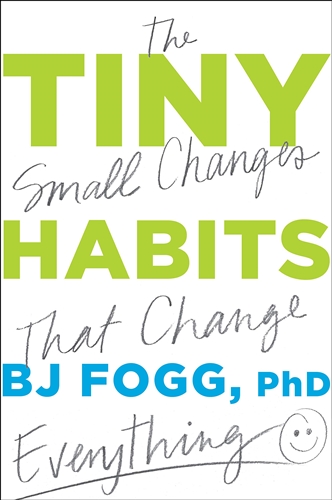

From: $145.00
Best Seller! This groundbreaking book will enhance the way you approach client interactions and forever change the way you practice. Learn how to apply what research reveals is the secret to successful habit change – shrinking behaviors into tiny form!
This course is CDR-approved for 21 CPEU for RD/RDNs and DTR/NDTRs, and CBDCE-approved for 21 CEU for CDCES’s.
CPEU/CEU: 21
Course Expiration Date: 11/30/2026. You have until that date to complete your CPEU Evaluation or Webinar Feedback Survey for this course.
Course Type: 720—Preapproved Self-Study Materials, Printed.
Includes CE Evaluation/Reporting Form: You will submit it online and receive your CE Certificate immediately.
Suggested Learning Level: 2
Author BJ Fogg, PhD, shares the research and inspiration behind his successful system and provides the tools and knowledge for application in your practice. Through relatable scenarios and case studies, the challenging task of habit formation is broken down into easily applied steps and techniques. This book will elevate your counseling skills to guarantee positive results with your clients.
Features:
Published 2020, 306 pages See the LNCs & PIs tab for suggested learning codes.
CPEU/CEU: 21 NOTE: Course Expiration Date: 11/30/2026. You have until that date to complete your CPEU Evaluation or Webinar Feedback Survey for this course.
4.2.3 Demonstrates insight into personal expertise and limitations.
8.4.5 Uses counseling techniques to promote behavior changes in food preparation.
9.1.3 Identifies and analyzes factors that influence behavioral change.
9.1.4 Evaluates factors that influence the learning process and skill building.
9.2.1 Assesses learning needs of the individual or target group.
9.3.2 Develops and/or selects a variety of learning activities based on a plan of action and outcomes, and the needs of the individual, group, community and population.
9.4.1 Assesses current knowledge and skills of the individual, group, community and population.
9.4.2 Selects and uses appropriate content and teaching methods to meet individual and group needs.
9.4.3 Takes into consideration special needs and disabilities and provides accommodations.
9.4.4 Adjusts education plan to meet the needs of the individual, group and population.
9.4.5 Implements an individualized teaching plan in order to promote, maintain and enhance nutritional health and learning.
9.4.6 Uses socially and culturally appropriate strategies in order to respect diverse cultures and values.
9.5.2 Writes new items to be used in data collection for evaluation of learning.
9.5.5 Analyzes and synthesizes evaluation data to recommend and make modifications to program.
9.6.7 Determines if further action is required as follow-up to counseling and coaching.
8.2.4 Imparts knowledge of the importance of physical activity and applies behavior change principles to promote physical activity and decrease inactivity.
9.1.2 Identifies and works to minimize and overcome barriers to learning.
9.2.3 Applies educational theories and uses assessment results for planning process and development of materials and teaching
12.4.3 Utilizes appropriate behavioral change theories, social marketing, behavior economics and communication strategies in the delivery of nutrition programs.
8.3.6 Keeps abreast of current nutrition and dietetics knowledge and trends.
9.1.5 Assesses, evaluates and applies educational theories.
9.4.8 Evaluates the impact of the individuals learning and new knowledge and skills.
5.2 Utilizes technology according to organization needs and workplace policies and procedures.
5.2.4 Determines the workflow and resource needs for clinical information system implementation, maintenance and upgrades.
9.1.1 Demonstrates and applies age-appropriate education principles.
9.3.1 Critiques and selects appropriate, current, evidence-based, practice-based reference materials to support the development of nutrition education resources.
9.3.3 Develops and/or selects culturally sensitive, evidence-based materials that are appropriate to the audience.
9.4.7 Demonstrates competent use of technology to enhance the learning experience and delivery of information.
9.5.1 Identifies usable evaluation questions from existing instruments.
10.2.11 Monitors, identifies and adjusts the intervention based on patient progress in meeting established goals.
2.1.6 Evaluates the effectiveness of the communication.
6.1.8 Monitors quality of own work and engages in continuing education and professional development to enhance practice knowledge. 8.3.1 Maintains the knowledge and skill to manage a variety of disease states and clinical conditions.
8.3.2 Implements a plan for continual professional improvement.
8.3.3 Takes action to address deficiencies to enhance practice.
8.3.4 Enhances knowledge to foster career advancement.
9.2.2 Determines and takes into consideration the literacy level and readability needs of the individual, group and population.
9.2.4 Collaborates with learner(s) and colleagues to formulate specific, measurable and attainable objectives and goals.
9.5.4 Uses evaluation instrument to collect data and assess outcomes of education process.
9.6.5 In collaboration with the customer, develops counseling or coaching goals.
9.6.6 Assists with resolution of barriers to achieving counseling and coaching goals.
10.2.12 Establishes new goals and a new plan of care when original or interim goals are met.
11.4.4 Collaborates with others to develop materials and messaging when the required skills exceed ability levels.
14.1.5 Leads and participates in department and organization goal setting in order to align departments goals with organizations strategic plan.
14.1.6 Measures goals and tracks outcomes against established benchmarks to ensure desired goals, standards and regulatory requirements are met.
1.1.1 Accepts responsibility and accountability for actions and decisions related to customers.
1.3 Applies customer-centered principles in practice.
1.3.1 Applies strategies that engage the customer in a collaborative approach.
1.3.2 Recognizes the strengths and limitations of a customer.
1.3.3 Builds rapport and trust within the relationship while respecting boundaries.
1.3.5 Identifies and respects economic and socio-cultural factors when determining the goals and wants of the customer.
1.3.6 Develops and implements culturally-appropriate strategies when delivering service.
1.3.7 Recognizes the limits of his/her cultural knowledge, skill and abilities; asks for help when the need is beyond the personal sphere of competence.
1.3.8 Initiates collective efforts with others to implement resources to support culturally-diverse customers.
1.3.9 Recognizes and incorporates knowledge of cultural and/or religious foods, practices and preparation.
1.6.4 Takes into consideration theCompetencies and Performance Indicators economical status of the customer when making recommendations and ensuring optimal care.
1.6.5 Advocates for financial support for customers to sustain a nutrition and treatment plan.
2.1.1 Assesses the communication needs of the individual, customer or population.
2.1.7 Delivers information and opinions in a respectful and professional manner.
3.2.3 Pursues and embraces opportunities to advance practice.
3.2.4 Encourages others to engage in personal and professional development activities for career growth and skill enhancement.
3.3 Advocates for the customer and facilitates acquisition of services and resources.
4.1.5 Recognizes situations where services provided to a customer should be adjusted, limited, modified or discontinued.
6.1.1 Recognizes and identifies systems errors and risk reduction measures.
6.1.4 Collects qualitative and quantitative data using mixed methodologies and interprets information.
6.3.6 Using the scientific process, systematically investigates and searches for information from a wide variety of sources.
2.1.5 Observes non-verbal cues and responds appropriately.
9.6.1 Determines and applies counseling theories, psychological methods and strategies that empower customers to make changes.
12.3.2 Applies community-based and population-based models and theories in the development of programs and/or interventions.
10.2.2 Works collaboratively with interdisciplinary team to identify and implement valid and reliable nutrition assessment tools to support access to care.
10.2.3 Analyzes and synthesizes the assessment data to identify nutrition problems following the Standards of Practice in Nutrition Care for RDNs.
Only logged in customers who have purchased this product may leave a review.
Skelly Skills is a provider of continuing education for dietitians (RD/RDNs), certified diabetes care and education specialists (CDCESs), registered nurses (RNs) and diet technicians, registered (DTR/NDTR). We provide CPE, (often called CEU, CE, and CPEU) for all of these groups, and all of our courses are approved for CE by the Commission on Dietetic Registration (CDR) and the CBDCE for CDCESs. Skelly Skills receives no commercial support and does not accept advertising or sponsorship of any kind.
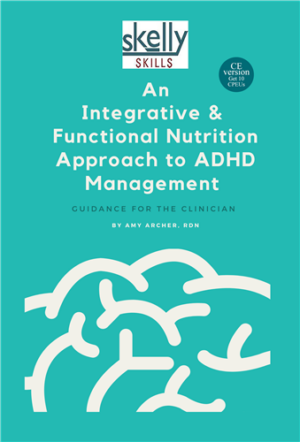
CPEU/CEU: 10
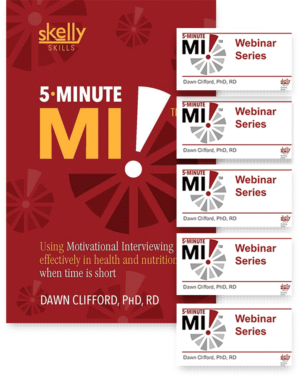
CPEU/CEU: 18

CPEU/CEU: 16
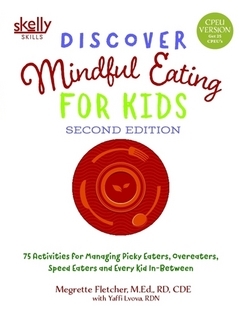
CPEU/CEU: 25


Purchase your webinar and receive a link to the webinar immediately.
Watch your webinar and then submit the CE Feedback Survey form by the course expiration date.
After submitting your CE Feedback Survey, you will be able to download your CPEU/CEU certificate as a pdf and keep for your records.
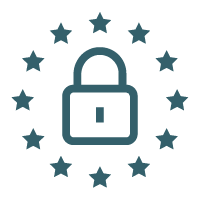
We use cookies to ensure you get the best experience. By using our website or clicking "accept", you consent to cookies.
K.T., RD –
This information is practical for home and work use.
M.P., RD –
I enjoyed this. It was practical and easy to use.
J.W., RD –
This was excellent, thorough material in behavior modification. Prior to this course, I had not encountered a course in behavior modification that was so specific and applicable. I think I can be more effective in helping clients that I coach through changes in behaviors that will affect their health because of this course.